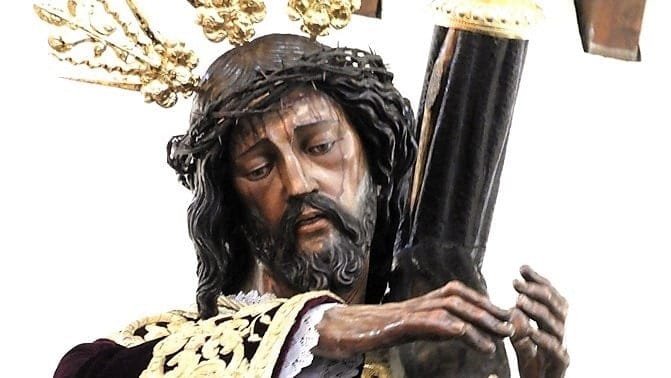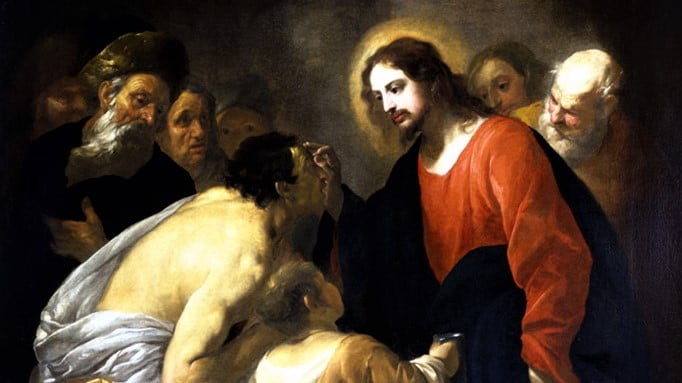THURSDAY 6TH WEEK IN ORDINARY TIME GOSPEL COMMENTARY. “WHO DO YOU SAY I AM? (Mk 8:27-33).”

Mk 8:27–33
Jesus and his disciples set out for the villages of Caesarea Philippi. Along the way he asked his disciples, “Who do people say that I am?” They said in reply, “John the Baptist, others Elijah, still others one of the prophets.” And he asked them, “But who do you say that I am?” Peter said to him in reply, “You are the Christ.” Then he warned them not to tell anyone about him.
He began to teach them that the Son of Man must suffer greatly and be rejected by the elders, the chief priests, and the scribes, and be killed, and rise after three days. He spoke this openly. Then Peter took him aside and began to rebuke him. At this he turned around and, looking at his disciples, rebuked Peter and said, “Get behind me, Satan. You are thinking not as God does, but as human beings do.”
COMMENTARY TO THE GOSPEL OF ST. MARK
- V. 29: PETER’S PROFESSION OF FAITH is reported here in a shorter form than in Mt 16:18-19. Peter seems to go no further than say that Jesus is the Christ, the Messiah. Eusebius of Caesarea, in the fourth century, explains the Evangelist’s reserve by the fact that he was the interpreter of St Peter, who omitted from his preaching anything which might appear to be self-praise. The Holy Spirit, when inspiring St Mark, wanted the Gospel to reflect the preaching of the prince of the Apostles, leaving it to other evangelists to fill out certain important details to do with the episode of the confession of Peter.
- The sketchiness of the narrative still shows Peter’s role quite clearly: he is the first to come forward affirming the messiahship of Jesus. Our Lord’s question, “But who do you say that I am?”, shows what Jesus is asking the Apostles for: not an opinion, more or less favourable, but firm faith. It is St Peter who expresses this faith (cf. note on Mt 16:13-20).
- VV. 31-33: JESUS FORETELLS HIS PASSION AND RESURRECTION. This is the first occasion when Jesus tells his disciples about the sufferings and death he must undergo. He does it twice more, later on (cf. Mk 9:31 and 10:32).
- The Apostles are surprised, because they cannot and do not want to understand why the Master should have to suffer and die, much less that he should be so treated “by the elders and the chief priests and the scribes.”
- But Peter, with his usual spontaneity, immediately begins to protest. And Jesus replies to him using the same words as he addressed to the devil when he tempted him (cf. Mt 4:10); he wants to affirm, once again, that his mission is spiritual, not earthly, and that therefore it cannot be understood by using mere human criteria: it is governed by God’s designs, which were that Jesus should redeem us through his Passion and Death. So too, for a Christian, suffering, united with Christ, is also a means of salvation.
Stay updated: subscribe by email for free TO OUR NEW WEBSITE www.catholicsstrivingforholiness.org (PUT YOUR EMAIL IN THE SUBSCRIBE WIDGET).
We are also in www.fb.com/Catholicsstrivingforholiness. Kindly help more people in their Christian life by liking our page and inviting your family, friends and relatives to do so as well. Thanks in advance and God bless you and your loved ones! Fr. Rolly Arjonillo

